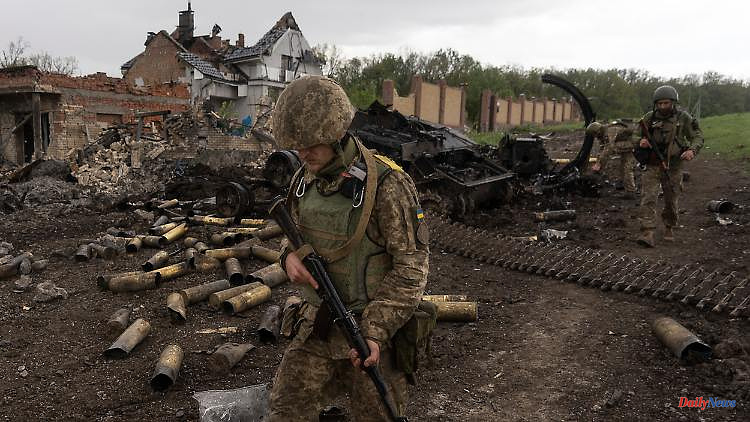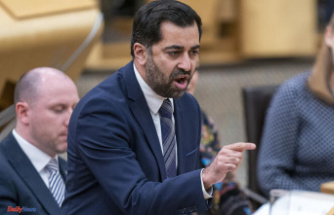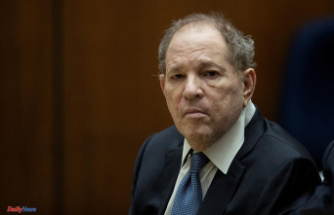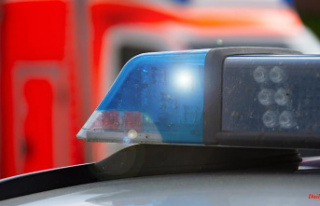During the phone call between Kremlin chief Putin and Chancellor Scholz, there were apparently no signs of hope. The decision to end the war must come from Moscow. But this is not recognizable. At the same time he commented on the requirements for a trip to Kyiv.
Even after the phone call with Russian President Vladimir Putin, Chancellor Olaf Scholz remains very concerned about the escalation of the war in Ukraine. "We have to worry that the war will escalate, but that shouldn't paralyze us," he said on the "RTL Direkt" program, adding: "We have to be able to make sensible, very conscious and to make very brave decisions." Putin must not win the war, that is the goal. But the goals would go no further: that would be quite wrong given that it is a nuclear power.
The Chancellor was also concerned about the duration of the war. That was the question he also asked: "What's the point of all this?" If things continue like this, in the end only more people will be dead and more villages, towns and cities will be destroyed. That is why the war must end quickly. But that would require a decision from Russia "to agree to reaching an agreement with Ukraine." Scholz demanded "that the guns be silent and that Russia withdraw its troops". This is the only way to find a solution. So far, however, such a development has unfortunately not been discernible.
With a view to a visit to Kyiv, the SPD politician said that he didn't just want to travel to do a photo shoot there. He has already spent many hours on the phone with the Ukrainian President. During a site visit, however, "it must be important that something is specifically promoted and must not just be a photo opportunity". He "does not want to join a group of people who do something for a short time with a photo session. But when they do, it's always about very specific things."
In view of the supply of raw materials from Russia, he said yes when asked whether it was naïve to become dependent on Russian gas. "Yes, we should have always put ourselves in a position to use other suppliers at any time, building the pipelines, the ports, where you can then get the gas from somewhere else," he said. Gas has always been supplied from Russia on a large scale and it worked very well for many decades, even "when the Iron Curtain was still there". Therefore, many would have weighed themselves pretty safe.
But it would have been good if an infrastructure had been built alongside it that would have made it possible to switch to LPG imports. This decision, for which he has personally campaigned for many years, has now been made. This would give Germany the opportunity to switch quickly, "and we should always have been able to do that".
6












